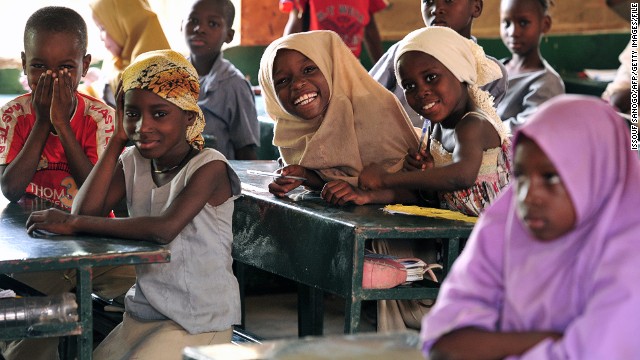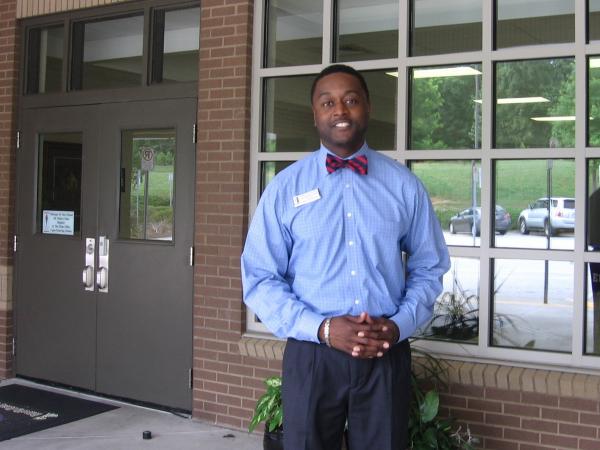Links:The Black Star Project's
website:
Black Star
Journal:
|
|
|
|
Evictions are as bad
for Black women as prison is for Black men
In Milwaukee,
Black women are only 9.6% of the population, but 30% of the
evictions

BY MATTHEW DESMOND
June
16, 2014
Patrice is,
in many ways, typical. A low-income woman, she's struggling to find affordable
housing in Milwaukee. The 24-year-old single mother of three shares a
two-bedroom apartment with her mother, her three young children and her three
siblings.
It's on the same block as abandoned buildings and memorials
for victims of shootings. The back door does not lock, the kitchen window is
broken, the toilet and shower remain stopped up for days, and the apartment
crawls with roaches.
Despite the substandard conditions, Patrice was thankful
for a roof over her head. However, after her $8/hour wages were cut, she fell
behind on rent and was evicted. She and her children would join the steady
migration of poor families in search of new housing.
In Milwaukee, where I conducted my research on this subject, 16 families
lose their homes each day. That's 16,000 people being forced out of 6,000
housing units every year. And those statistics don't even account for informal
evictions, like using strong-arm tactics or paying unwanted tenants to move.
Even more disturbing, women from black neighborhoods in Milwaukee
represent only 9.6 percent of the population, but 30 percent of the
evictions.
This dynamic has long-term implications. Eviction can be the
equivalent of a prison record for poor women, making in nearly impossible for
them to find housing again. Evictions can ban a person from affordable housing
programs. And many landlords will not rent to someone who's been
evicted.
As they like to say, "I'll rent to you as long as you don't
have an eviction or a conviction." These twinned
processes-eviction and conviction-work together to propagate economic
disadvantage in the inner city.
In other words: Poor black men are locked up while
poor black women are locked out.
Despite the fact that many are one paycheck away from not making the
rent, only one in four households that qualify for housing assistance receive
it. Even as demand is rising, the supply of affordable units is dwindling-and
rents are rising.
|
|
11 year-old England scholar
has IQ higher than
Einstein

Young, Gifted & Black Series
By
Taki Raton
June 7, 2014
Upon taking the Mensa test, our exemplar YG&B
feature this week was informed that he has an IQ higher than Steven Hawking, Bill Gates, and yes - even Albert
Einstein.
He is young, gifted & Black.
Ramarni Wilfred of Loom Groove,
Romford in England has become the latest member of the exclusive Mensa society
after achieving what the May 20, 2014 posting of the AfricanGlobe describes as
"the highest possible score on an IQ test."
Experts, however, contend that Albert Einstein has an IQ of around 160.
Eleven year-old Ramarni Wilfred's IQ was tested at 162 placing him in the top 1
percent in the UK.
"I was surprised and very happy when I read the
results of my IQ test as I didn't feel very confident after completing the
test," he is quoted in the May 22, 2014 writing of Black-Like-Moi.
He adds that, "I was the youngest person there and
some people looked to be in their
40s."
His mother Anthea said that she first noticed her son's exceptional
ability early on and that there was something very special about him.
"He was quite young when he started talking clearly
and as soon as he started walking, he would go looking for books," she reveals
in AfricanGlobe.
She notes that by the time he was enrolled in pre-school, he had already
begun to master reading, spelling, and writing and his teachers wanted to advance him straight
into first grade.
But his mother, again as quoted by the Globe,
"thought it would be best for him socially to remain with his peers."
Mother Anthea said that she tries to support her son as much as possible
by introducing him to extra activities like museum visits and educational nature
walks.
Still positing a highly respected humble nature at 11
years-old, he visions that joining Mensa is, "a great opportunity and I think it
can open a lot of doors for me. But I also believe that having a high IQ isn't that important
unless you do something really special with it."
Click
Here to Read Full Story
|
|
Tune in to hear
Dr. Donald H. Smith
former president
of the National Alliance of Black School Educators (NABSE), former teacher at
Wendell Phillips High School in Chicago, founder of the Northeastern Illinois
University Carruthers Center for Inner City Studies and honored in the Baruch
College Donald H. Smith Distinguished Lecture
Series
 |
|
Dr. Donald H. Smith (seated
left)
|
discussing
Education 30 Years
Ago
and Education
Today
for Black Students
*********************************************
Saturday, June 21,
2014
6:00 pm
central time
On WVON -1690
AM
Join us at
7:00 pm Eastern; 6:00 pm Central; 5:00 pm Mountain; 4:00 pm Pacific; 3:00 pm
Alaskan; 2:00 pm Hawaiian. Call-In number at 773-591-1690
Listen to The Black
Star Project's
Internationally Acclaimed Radio Program
The Parent
Revolution
*****************************************************************
The Black Star Project thanks the Board of
Directors of The Field Foundation of Illinois, the Board of Directors of Woods
Fund of Chicago, Illinois State Senator Jacqueline Collins, Illinois State
Senator Kimberly A. Lightford, Chicago Alderman Will Burns and Melody Spann
Cooper of WVON for their generous support for our parenting
programs.
|
|
'Africa Rising'?
Not really, unless we invest more in girls
(30 Million Girls
in Africa Denied Education)
 |
|
Children pose in a classroom at the Friendship Primary school in
Zinder, Niger, on June 1, 2012.
|
By Ellen Johnson Sirleaf, President of Liberia,
Special to CNN
June 16, 2014
Editor's
note: Ellen Johnson Sirleaf is the president of Liberia and a Nobel Peace Prize
winner. The opinions expressed in this commentary are solely hers.
(CNN) -- What factor has the power to
transform individual lives, communities, nations and the world?
The answer to this complex question is a simple one:
education. While it is widely accepted that there is no one solution to lift the
millions across our globe out of poverty, it is also equally accepted that a key
cornerstone of addressing some of the world's most pressing challenges is
through providing a quality education to all children, especially girls.
Despite increasing numbers attending school in recent
years, 126 million children remain out of
primary school and lower secondary school around the world. Some 65 million of
these children are girls.
The highest
rate of girls not in school is across the African continent, where in
sub-Saharan Africa nearly four out of five poor rural girls are not completing
primary school. There are an estimated 250 million children worldwide of primary school age who can't read,
write or do basic math -- more than half of whom have completed four years of
schooling.
It is unacceptable that in 2014 -- less than a year
away from the deadline the international community agreed to get all children
into school -- that 30 million girls in Africa
are denied their basic human right to a quality education.
Ensuring that every child goes to school, stays in school
and learns something of value while there will require firm commitments and
action by governments to invest in education and prioritize the education of its
girls.
Some countries lose more than $1 billion a year by failing to educate
girls to the same level as boys.
|
|
Field Notes: Training
Role Models For Young African-Americans
 |
|
Ricardo Quinn, principal of Chesney Elementary School in Duluth, Ga.,
helps develop young black male teachers with the "Call Me Mister" program
(Claudio Sanchez NPR)
|
By
Claudio Sanchez
June 16,
2014
I've been on assignment
the last few days for a story about a project named "Call Me Mister." Run out of
Clemson University in South Carolina, for nearly 15 years now it's been
recruiting and placing black male teachers in elementary schools. They're
responding to the simple fact that there aren't enough black men in the teaching
profession.
According to
the folks who run the program, fewer than one percent of elementary school
teachers in South Carolina are African-American males. The national figures
aren't much better. Only two percent of the 4.8 million classroom teachers are
black men, according to the National Center for Education Statistics. Even in
majority black districts, classroom teachers are predominantly white, and
female.
The founders
of "Call Me Mister" have shown that
African-American boys respond to black male teachers and bond with them in
special and profound ways. And from that bond, they believe, academic success
will follow.
And yet, sadly, that's
what makes the tragedy at Reynolds High School relevant to my story assignment.
Good teachers know all too well they have the power to alter the course of
children's lives.
Do you want to know what
the young black men in this program talk about when they talk about instilling
hope in children? They talk about taking the time to embrace even the most
troubled child and saying, " 'I'm there for you, because I care, even when
nobody else does.' "
These teachers I met in
South Carolina and Georgia reminded me that all the metal detectors and
surveillance cameras in the world may not be able to stop an angry, hopeless boy
from turning to violence. But there are proven ways to stop a little boy from
feeling angry and hopeless.
|
|
Join
Residents Association
of
Greater Englewood
(R.A.G.E.)
Saturday, June 21,
2014
Sherwood
Park
5701 South
Shields
Chicago,
Illinois
 |
|
Building Strong Homes
in Englewood
 |
Saturday University
Ensure that
your children excel in their learning at a Saturday University. Saturday
University is one of the newest and most effective educational concepts in
America for educating students of color. It is family- and community-driven
education at its best. As many/most Black children in American schools are
failing academically, the only way to successfully educate them is with the
support and actions of their parents, families and communities. Register now
for Saturday University.
Call
773.285.9600 for more
information.
|
|
|
|













No comments:
Post a Comment